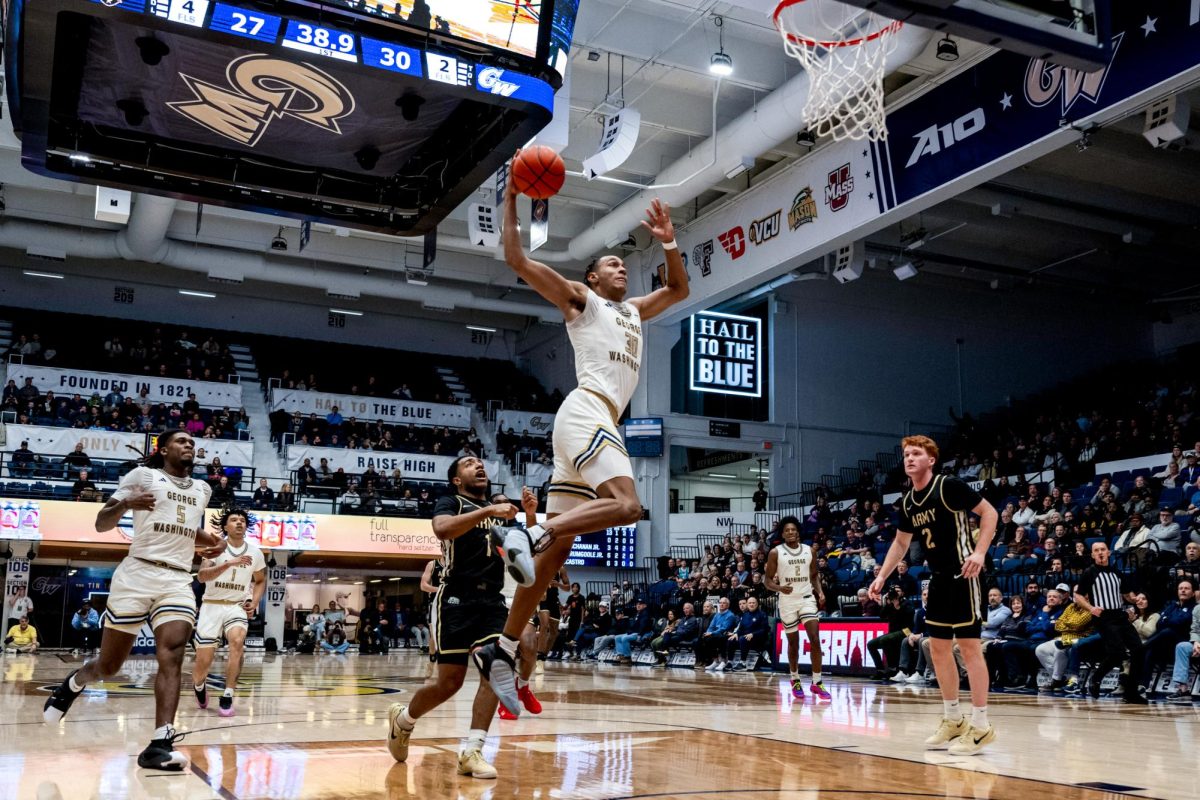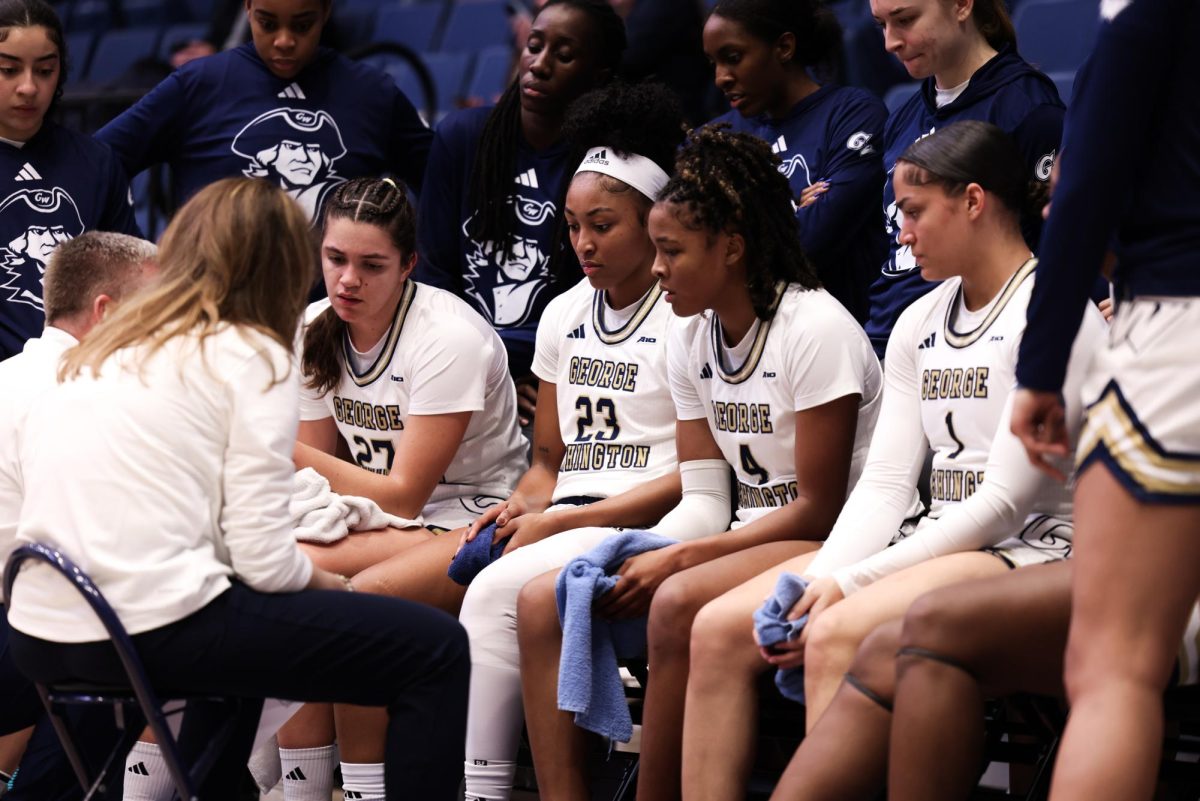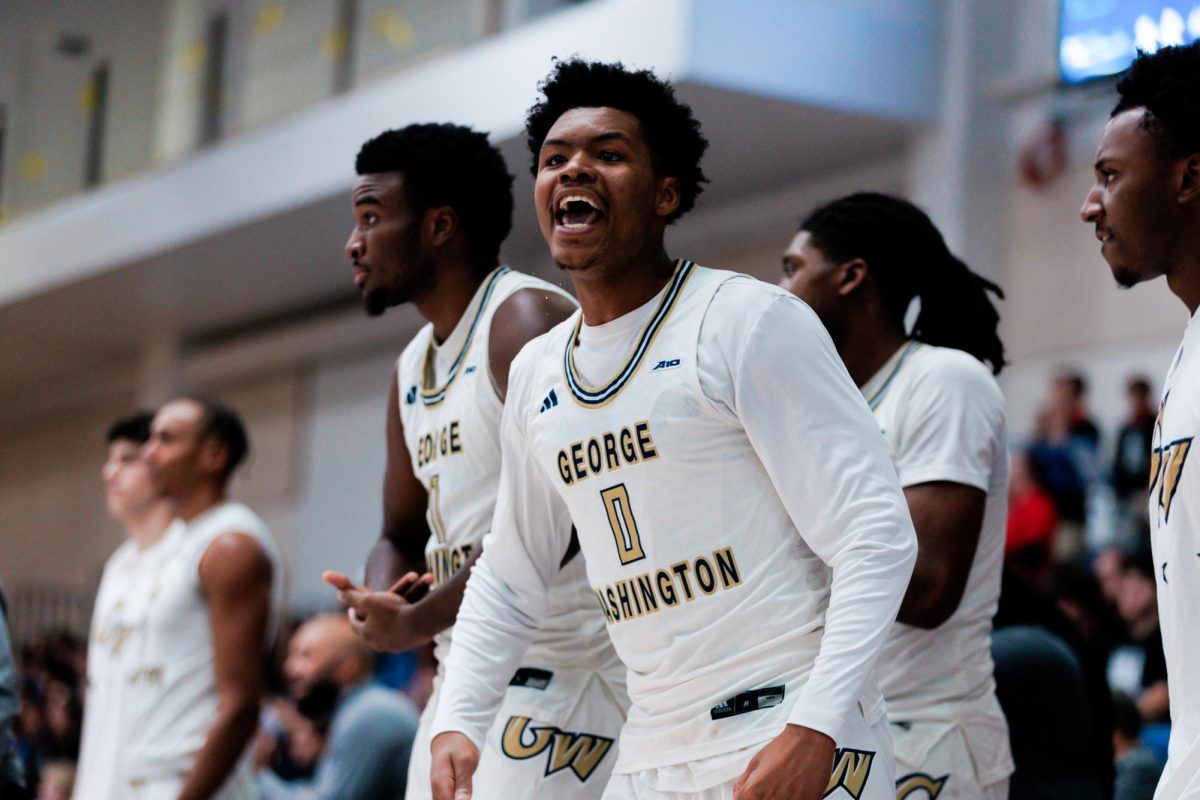He’s barely 20 years old and lives almost 5,000 miles away from his home, relatives and friends. He also speaks with a thick Ukrainian accent and stands six-foot-11.
This is Alex Kireev (pronounced Kear-RAY-ef), a sophomore center for the GW men’s basketball team. Kireev moved to the United States when he was 16 years old, not knowing a lick of English but having a mind to play Division I NCAA basketball. After averaging 14 points and 10 rebounds at Evangel Christian Academy in West Shreveport, La., the big man came to a young GW team ready to contribute in fall 2002.
GW men’s basketball head coach Karl Hobbs was one of many inside the athletic department who had high expectations for the tall Eastern European. These expectations were significant enough to earn Kireev a spot on the team’s starting lineup for both of GW’s preseason games and the first two games of the regular 2002-03 season.
But Kireev’s freshman year went downhill after the month of November. And while he would go on to score a season-high 11 points against then-No. 9 Maryland, he was unable to crack the starting lineup after those first two games and ended up averaging just over nine minutes per outing.
Kireev said he underachieved in his rookie campaign and understood why he was on the bench.
“The coaching staff did what they had to do,” he said. “I would (have) loved to start, but I (would have had) to work harder. I was most upset with myself.”
Kireev attributed his problems in part to trying too hard to impress the coaching staff, so he dedicated himself to improving his game over the summer.
But while most of the Colonials worked out in camps and summer leagues with their teammates, Kireev went overseas to improve, playing with the Ukrainian national team at the World University Games in Egypt.
While the average age of Ukranian team members was 25, Kireev was only 19 during the August tournament (he turned 20 in September). Despite his youth, he started in six of the team’s eight games, averaging 4.4 points and 4.9 rebounds in just over 21 minutes. He also showed improvement as the summer went on, which culminated in back-to-back 10-rebound games late in the tournament.
As a team, Ukraine won three games and lost five to finish in eighth place out of 18 countries.
While other coaches may have preferred Kireev stay in Washington to train with his teammates, Hobbs said he and his staff saw the player’s time abroad as a great opportunity.
“The ultimate goal for our players over summer is just to improve as a basketball player,” he said. “I was excited for him. I thought it was a great opportunity. Besides, you can get injured anywhere.”
Hobbs declined to predict how well Kireev would perform in the 2003-04 season this far ahead of time but said Kireev has a great deal of potential once he adjusts to playing Division I basketball.
“I’m hoping he handles the speed of the game better,” Hobbs said. “Because that should help him a lot this year.”
His continuing adjustment to living in America should also help. Kireev likely could have stayed in the Ukraine through high school and still earned a spot on a Division I team, but he knew that crossing the Atlantic beforehand would make the transition much easier. And those extra two years before college have paid off, he said.
“I wanted to get to know the culture,” Kireev said. “It wasn’t too difficult adjusting, but it did take a couple of months. My teammates make fun of my accent a lot, but it doesn’t offend me. I admit that I do get homesick sometimes, but not as much as I used to. I keep in contact with e-mail.”
With his comfort level improving along with his game, Kireev said his only worry this summer was falling behind his teammates after spending the summer abroad.
“Being with the national team helped individually because I’m a better player now,” he said. “But from a team perspective, I’ll have to catch up.”
Once he does catch up, the young Ukrainian could find himself off the bench and back in Hobbs’ starting lineup.






